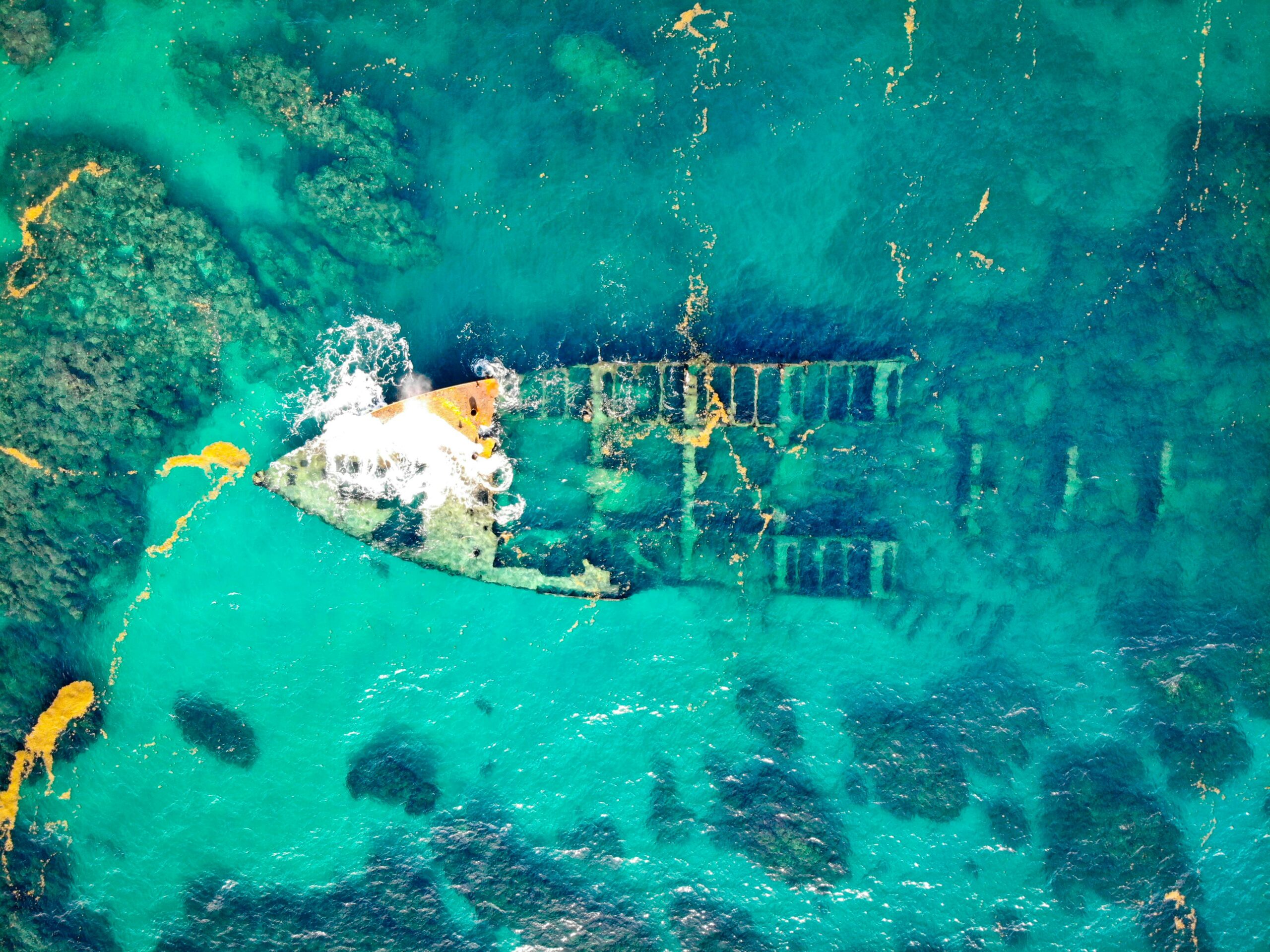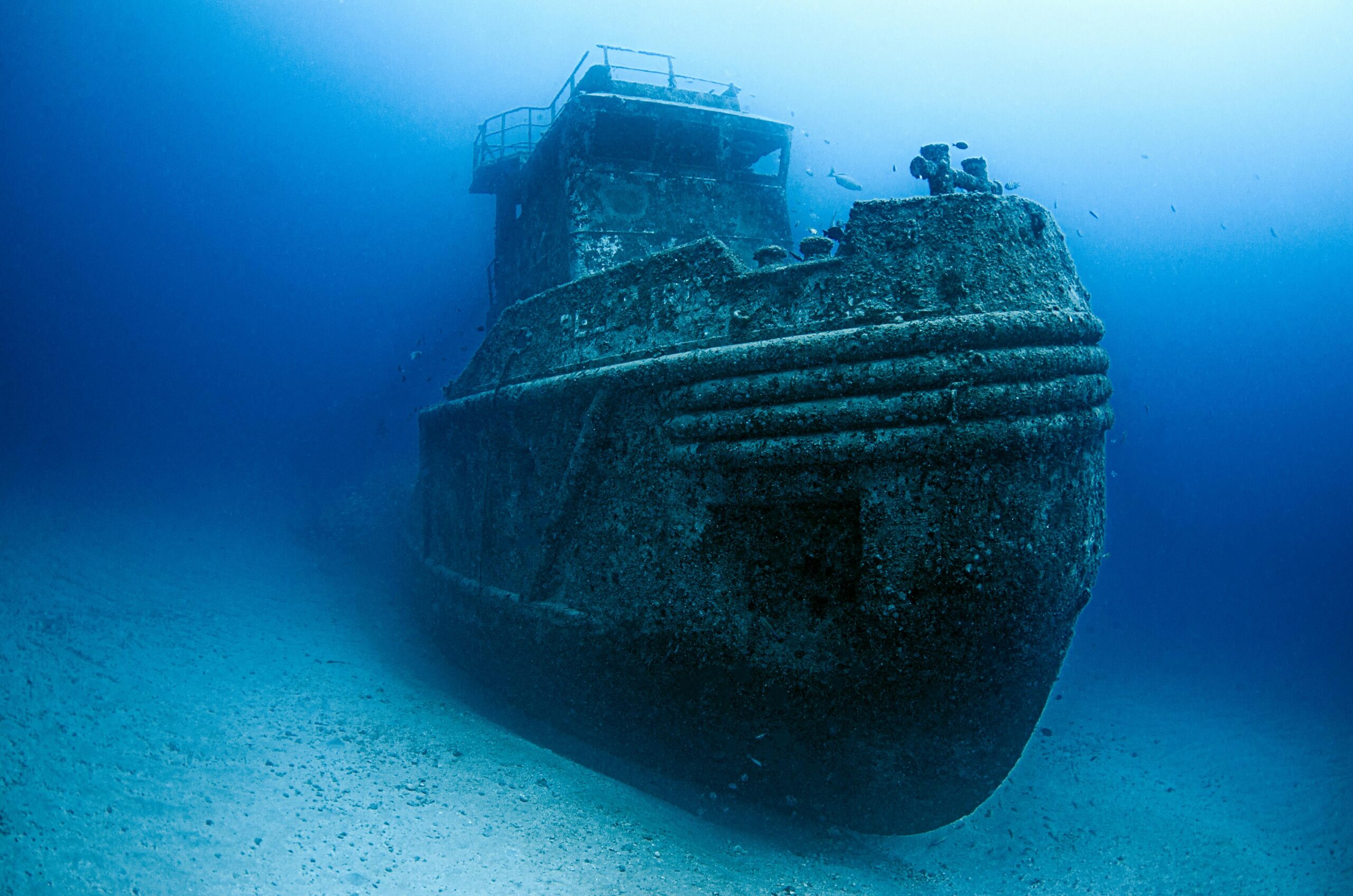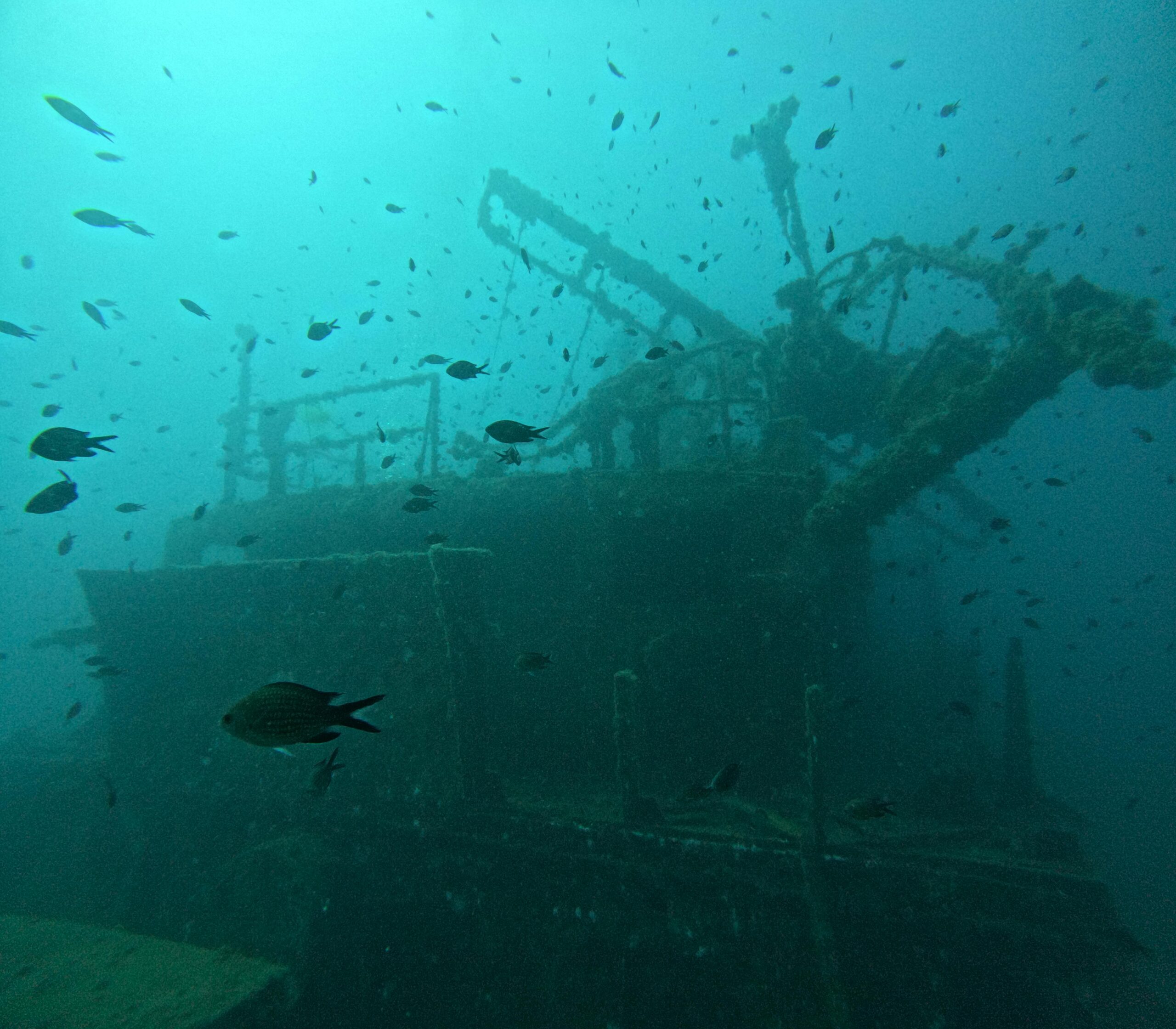In the vast, enigmatic expanses of the ocean lie secrets untold and treasures unseen, remnants of history waiting to be discovered beneath the gentle sway of the waves. These underwater treasures, shipwrecks scattered across the ocean floor, tell stories of adventure, trade, conflict, and tragedy. From Spanish galleons laden with gold to merchant ships with cargos of spices, each wreck is a submerged time capsule, inviting explorers and historians alike to uncover its mysteries. Yet, beyond the allure of sunken treasures and lost tales lies a complex web of legal disputes and ownership battles that often unfold on the surface. 🌊
In our journey through “Claiming the Sea: Navigating the Legal Waters of Shipwreck Ownership Battles,” we will delve into the intricate legalities that surround these submerged relics. The question of who owns a shipwreck is far from straightforward. It often involves a tangle of international laws, national regulations, maritime conventions, and private claims. As technology advances and makes these deep-sea explorations more feasible, the race to claim these underwater artifacts intensifies, bringing to the fore not only legal challenges but also ethical and cultural considerations. The sea may seem to hold endless possibilities, but it also harbors disputes as deep as its waters.
Our exploration will take you through the multifaceted world of maritime law, highlighting key cases that have set precedents in shipwreck ownership disputes. We will examine the role of international agreements like the UNESCO Convention on the Protection of Underwater Cultural Heritage, which aims to preserve these sites for humanity while balancing the interests of nations and private entities. You’ll gain insights into the intricacies of salvage rights, the doctrine of finds, and how different countries interpret these concepts. Each legal battle over a shipwreck isn’t just about the rights to a physical object but about the stories, heritage, and cultural significance that these objects embody.
As we navigate these legal waters, we’ll also address the modern-day treasure hunters—those intrepid souls who embark on daring expeditions, driven by the promise of discovery and the thrill of adventure. Who are these people, and what motivates them? How do they balance their pursuits with the responsibilities of preserving our shared heritage? 🏴☠️ Through interviews with experts, stories from the field, and a look at the technological innovations transforming underwater exploration, this article will provide a comprehensive guide to understanding the stakes involved in claiming the sea. Join us as we uncover the legal, ethical, and human dimensions of shipwreck ownership battles, a journey that promises to be as deep and enriching as the ocean itself.
The Legal Framework: Understanding Maritime Law and Shipwreck Ownership
The realm of maritime law is as vast and complex as the oceans themselves. Governed by a mix of international agreements, national laws, and historical precedents, the legal framework surrounding shipwreck ownership involves multiple stakeholders with varied interests. These include governments, treasure hunters, private companies, and sometimes, descendants of the ship’s original owners. Understanding this intricate legal landscape is crucial for anyone attempting to claim ownership over a shipwreck.
At the core of maritime law is the United Nations Convention on the Law of the Sea (UNCLOS), which provides a comprehensive legal framework governing all ocean activities. UNCLOS recognizes the sovereignty of coastal states over their territorial waters, which extend up to 12 nautical miles from their shorelines. However, beyond this limit, the rules become more intricate. The convention also addresses the rights and responsibilities of nations concerning the exploitation of marine resources, navigation, and the protection of the marine environment.
In the context of shipwrecks, UNCLOS offers some guidance, but it is not exhaustive. It generally stipulates that the nation within whose territorial waters a wreck is found has primary jurisdiction. However, when shipwrecks are located in international waters, the situation becomes more complex. Various factors, such as the ship’s origin, historical significance, and the presence of valuable cargo, can influence the legal proceedings. This is where international treaties and national laws intersect, often leading to legal battles over ownership claims.
The Role of Salvage Law and Historic Preservation
Salvage law plays a pivotal role in shipwreck ownership disputes. Under traditional maritime salvage laws, a party that recovers a shipwreck or its cargo may be entitled to a salvage award, which is typically a percentage of the recovered value. However, this does not necessarily confer ownership of the wreck itself. Salvage rights are contingent upon the operation being conducted legally, with respect for any applicable laws and regulations. The principle of “finders keepers” does not apply here, as the legal system aims to balance the interests of salvors with those of rightful owners.
In contrast, laws concerning historic preservation can significantly impact shipwreck ownership. Many nations have enacted legislation to protect underwater cultural heritage, particularly shipwrecks of historical and archaeological significance. The UNESCO Convention on the Protection of the Underwater Cultural Heritage is a notable international agreement that seeks to safeguard such sites. Under this framework, shipwrecks deemed historically valuable may be protected from commercial exploitation, and activities around them are regulated to ensure their preservation.
This dual approach of salvage law and historic preservation creates a dynamic legal environment. While salvage laws encourage the recovery of valuable materials, preservation laws prioritize the protection of cultural heritage. This dichotomy often leads to contentious legal disputes, as parties with differing motivations clash over the ownership and treatment of shipwrecks.
International Disputes and Jurisdictional Challenges
Shipwreck ownership disputes often involve complex jurisdictional issues, especially when shipwrecks are located in international waters or on the continental shelf. In such cases, multiple countries may claim jurisdiction, leading to protracted legal battles. These disputes are further complicated by the diverse legal systems and historical claims involved.
One high-profile case illustrating these challenges is the recovery of the Nuestra Señora de las Mercedes, a Spanish frigate sunk in 1804. The ship, discovered by the American company Odyssey Marine Exploration in international waters, became the center of a legal battle between the company and the Spanish government. Spain argued that the ship was a military vessel and part of its national heritage, while Odyssey claimed salvage rights. After lengthy court proceedings, the U.S. courts ultimately ruled in favor of Spain, highlighting the complexities of international maritime law.
Jurisdictional challenges are not limited to high-profile cases. Even smaller shipwrecks can become the subject of international disputes. Factors such as the ship’s country of origin, the nationality of the crew, and the location of the wreck all play a role in determining jurisdiction. In some instances, bilateral or multilateral agreements between countries are required to resolve these disputes amicably.
The Impact of Technological Advancements on Shipwreck Discovery
Technological advancements have revolutionized the way shipwrecks are discovered and explored. Modern technologies such as satellite imaging, underwater drones, and advanced sonar systems have made it possible to locate shipwrecks with unprecedented accuracy. These technologies not only aid in the discovery of new wrecks but also provide detailed information about their condition and potential value.
However, the increased accessibility of shipwrecks has also led to new legal challenges. As more individuals and companies venture into underwater exploration, the potential for conflicts over ownership and salvage rights has grown. Legal frameworks have struggled to keep pace with these technological advancements, leading to calls for updated regulations that address the unique challenges posed by modern exploration techniques.
Environmental Considerations and Ethical Implications
The recovery and exploration of shipwrecks also raise significant environmental and ethical considerations. Many shipwrecks are located in delicate marine ecosystems, where their disturbance can have far-reaching ecological impacts. Oil spills, chemical leaks, and physical damage to coral reefs are just some of the environmental risks associated with shipwreck recovery.
To mitigate these risks, environmental regulations often play a crucial role in shipwreck exploration. Governments and international organizations have established guidelines to ensure that recovery operations are conducted sustainably and with minimal environmental impact. Compliance with these regulations is not only a legal requirement but also an ethical obligation for those involved in underwater exploration.
Ethical considerations extend beyond environmental concerns. The treatment of human remains found in shipwrecks is a sensitive issue that requires careful handling. Many shipwrecks are the final resting places of sailors and passengers who perished at sea, and their discovery necessitates a respectful and dignified approach. Legal frameworks often incorporate guidelines for the treatment of human remains, emphasizing the importance of cultural sensitivity and respect for the deceased.
Economic and Cultural Impact of Shipwreck Recovery
The economic potential of shipwreck recovery is a significant driving force behind many ownership claims. Valuable cargoes, such as gold, silver, and artifacts, can attract treasure hunters and commercial enterprises eager to profit from their discoveries. However, the pursuit of economic gain must be balanced against the cultural and historical significance of shipwrecks.
Many shipwrecks hold immense cultural and historical value, providing insights into past civilizations, trade routes, and maritime history. The recovery and study of artifacts from these sites contribute to our understanding of human history and cultural heritage. Consequently, the management of shipwrecks often involves collaboration between archaeologists, historians, and legal experts to ensure that their cultural significance is preserved.
- International regulations and conventions shape the legal landscape.
- Jurisdictional challenges complicate ownership claims.
- Technological advancements drive discovery but pose legal challenges.
- Environmental and ethical considerations are paramount.
- Economic interests must be balanced with cultural preservation.
Conclusion
Navigating the intricate waters of shipwreck ownership is a complex and multifaceted endeavor that brings together historical intrigue, legal conundrums, and cultural significance. This article has explored the myriad facets of this topic, shedding light on the historical background, the legal frameworks that govern these underwater treasures, and the ethical considerations that must be navigated by all stakeholders involved.
At the heart of the matter is the age-old question of ownership. Shipwrecks, particularly those with historical and cultural value, are not merely remnants of the past; they are capsules of history that offer a glimpse into the lives, technologies, and events of bygone eras. As such, the legal and ethical questions surrounding their ownership are fraught with challenges. Nations, salvage companies, archaeologists, and descendants of those who perished in maritime disasters all have vested interests that often collide.
The article began by delving into the historical context of shipwrecks, underscoring their importance as cultural and archaeological sites. From the Titanic to the Spanish galleons laden with gold, each shipwreck tells a story that transcends time and borders. These stories are not just about treasure; they are about human endeavor, tragedy, and the enduring mysteries of the sea. As highlighted, understanding the historical significance of shipwrecks is crucial for appreciating the legal complexities that follow.
Legally, shipwreck ownership is governed by a labyrinth of international and national laws, treaties, and conventions. The United Nations Convention on the Law of the Sea (UNCLOS) and the UNESCO Convention on the Protection of the Underwater Cultural Heritage are pivotal frameworks that attempt to balance the interests of preservation, research, and rightful ownership. However, as discussed, the interpretation and implementation of these laws often vary, leading to contentious battles in courts worldwide.
The article further explored the role of salvage law, particularly the principles of “finders, keepers” versus “salvage rights,” which play a significant role in disputes over shipwrecks. These legal principles often clash with the desire to preserve shipwrecks as sites of cultural and historical importance. Salvors may argue for compensation based on the effort and risk involved in recovery operations, while archaeologists and cultural heritage advocates emphasize the need for preservation and study.
Ethical considerations are equally paramount. The debate over whether shipwrecks should be disturbed at all is ongoing, with many advocating for a hands-off approach to allow these underwater sites to remain as they are, serving as silent memorials to the past. The ethical discourse is further complicated by the potential for looting and commercial exploitation, which can strip shipwrecks of their historical value and desecrate sites of human tragedy.
In light of these discussions, it becomes clear that a delicate balance must be struck between competing interests. The preservation of cultural heritage, the rights of sovereign states, the interests of private salvors, and the importance of scientific research all demand consideration. To achieve this balance, international cooperation and dialogue are essential, as is the need for robust legal frameworks that are consistently applied.
As we conclude this exploration of shipwreck ownership battles, it is crucial to recognize the broader implications of these discussions. The way we choose to manage and protect shipwrecks speaks volumes about our values as a global society. By prioritizing cultural heritage, ethical stewardship, and international collaboration, we can ensure that these underwater treasures continue to educate and inspire future generations.
We invite you, the reader, to reflect on the significance of shipwrecks beyond their material value. Consider the stories they tell and the lessons they offer about resilience, innovation, and the human spirit. Engage with this topic by sharing your thoughts, whether through comments or by starting conversations within your communities. Let us work together to protect our shared maritime heritage, ensuring that it remains a source of wonder and knowledge for generations to come. 🌊🔍
For further reading on the legal frameworks governing shipwrecks, you may explore resources like the UNESCO Underwater Cultural Heritage site and the United Nations Convention on the Law of the Sea documentation, both of which provide comprehensive insights into the laws and policies shaping this field.
Gabriel is a visual storyteller and archival artist whose lens dives deep into the submerged echoes of underwater archaeology. Through sediment and salt, Gabriel traces forgotten histories — those whispered by shipwrecks, eroded artifacts, and drowned cities.
Compelled by the allure of ancient trade routes, submerged sanctuaries, and the ocean’s quiet possession of the past, Gabriel’s work charts a poetic cartography of the sea’s memory. From coral-laced amphorae to oxidized anchors, every object he illuminates becomes part of a narrative where time collapses and the past drifts close.
His creations are more than documentation — they are visual meditations on absence and endurance. Gabriel blends design, historical research, and storytelling to surface the quiet resilience of maritime remnants. He captures the textures of time: rust that blooms like algae, stone that crumbles into myth, and silence that speaks louder than ruin.
Through curated imagery, thoughtful essays, and reconstructed impressions of what lies beneath, Gabriel invites viewers to see underwater ruins not as remnants, but as thresholds to wonder — places where memory is refracted through water, and where myth lingers like salt on stone.
His practice is a tribute to:
The unknowable depths of civilizations consumed by tides
The fragile endurance of objects left behind
The enduring dialogue between water, stone, and remembrance
If your soul drifts toward the relics of lost maritime empires, the mythic pull of coastal rituals, or the ghostly grace of sunken vessels, Gabriel welcomes you to descend into a space where history sleeps in sediment — but dreams in currents.





